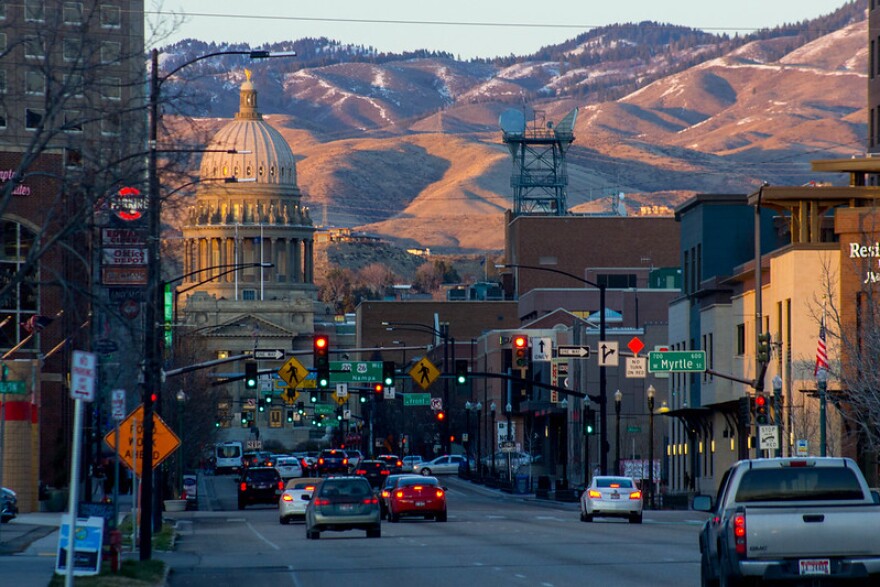The nonprofit and non-partisan Idaho Center for Fiscal Policy is expecting a busy legislative session, but a shorter one as is customary in an election year.
“It's also during campaign years that we also see the most ‘hot button’ issues come up,” the Center’s Director of Policy and Research Kendra Knighten said during a presentation Dec. 21.
The session is likely to include school voucher legislation or some kind of tuition tax credit, plus another reduction in the state income tax rate.
No matter what comes up, lawmakers will have less money to spend compared to recent years.
State budget managers report Idaho’s revenue is currently about $98 million short of projection. That means comfy budget surpluses of recent years are likely over - but the revenue picture really doesn’t clear up until after tax day each April.
Property tax relief and a change to a 5.8% flat income tax in 2022 are what’s driving the drop in revenue, Knighten said. She expects state lawmakers will push to reduce the flat income tax rate again in 2024 to 5.6%.
“By taking that down 0.2%, we could anticipate about a $100 million reduction in revenue,” she said.
The Center predicts income tax reductions made since 2021 mean Idaho will take in nearly $3 billion less over the next five years. Flat tax reductions benefit the wealthy at a much higher rate, she said.
“We just want to really highlight the fact that when we do see these types of reductions in revenue for the state; those tax cuts generally chip away at Idaho's revenue stream and decrease funding available for public service programs,” Knighton said.
Policy analyst May Roberts said school voucher or tuition tax credit programs are likely to come up again. Roberts said spending data from states which already have vouchers in place showed ballooning costs to support those programs.
“Arizona's voucher spending, over an 11 year period went up 270%, while their per-pupil spending in public education went down 5.7%,” she said.
Data show spending in Florida’s voucher program more than tripled in 11 years, Roberts noted.
Some of the increase happens as states remove income limits to qualify for the benefit. But increases in voucher program spending generally run alongside decreased per-pupil spending in public schools, which disproportionately affects rural districts, she said.
Idaho already ranks 49th in the country for per-pupil spending.
The Center also predicts legislation to simplify already-existing property tax exemptions for affordable housing, and an attempt to extend the required eviction notice for residents of long term care facilities from 30 to 90 days.
Knighten said lawmakers are targeting adjournment sine die by March 22. Changes made to the budget presentation process by Joint Finance Appropriations Committee leaders should speed up their work, potentially by as much as one month, but the change also means less information shared during public hearings and more reliance on the work of legislative staff that happens in private.
“That's something that we'll be watching closely throughout the legislative session,” Knighten said.
The 67th Idaho Legislature convenes Monday, Jan. 8, 2024 with Governor Brad Little’s "State of the State" address.



